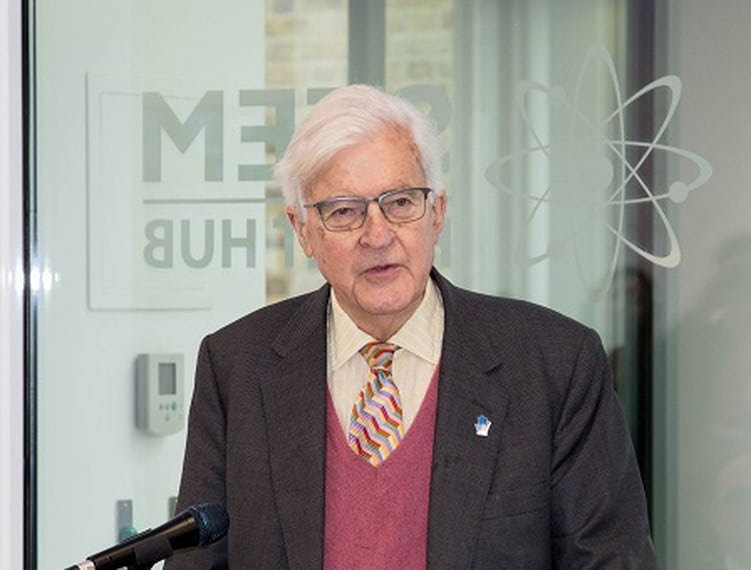“Traditional” Schools Must Embrace Project-based Learning To Reduce The Skills Gap

UTC Students Experience The Benefits Of Project-based Learning
Since the start of 2019, barely a day has passed without employers, business organisations, politicians, and other luminaries highlighting the increased risk to this country’s large and widening skills gap from Brexit.
Therefore, the NFER’s Evaluation of University Technical Colleges (UTCs), released today (19 Feb), provides a timely reminder that our school system could be part of the solution.
‘Traditional’ School Education Does Not Equip Young People
As the NFER report points out, the involvement of employers in the curriculum and the use of project-based learning are two important and distinctive elements of the UTC model. Indeed, UTCs were established because employers felt a ‘traditional’ school education does not equip young people fully with the skills, attitudes, and attributes desperately needed in the workplace.
As well as a detailed evaluation of three UTCs, helpfully NFER’s 44-page research study provides sound guidance for other schools seeking to offer the unique aspects of a UTC curriculum. Let’s hope, for our country’s stake, many heed that advice.
Encouragingly, the researchers found that effective employer engagement and project-based learning do have a profound impact on UTC students.
In particular, they identify greater confidence, work-readiness, enhanced emotional skills, and high-level technical competencies as some of the benefits to young people from a UTC education.
Furthermore, through access to industry professionals and an exposure to a variety of projects, students are much better equipped when making decisions regarding their future destinations.
It is therefore not surprising that last year, 27% of 18 year-old leavers from UTCs started an apprenticeship, with more than half at a higher or degree level, and 47% started at university with 4/5ths choosing a STEM course, almost twice the national average.
Classroom-based And Project-based Learning Support Each Other
UTC student feedback included within NFER’s study also suggests that classroom-based and project-based learning support each other. For example, students recognise that work-ready skills are transferable: they could be used equally to support job, apprenticeship and university applications.
In addition, students believe that attending a UTC has improved their general levels of motivation and engagement in learning. This clearly benefits academic progress too.
As with any good idea, the real challenge is implementation. NFER’s case studies are drawn from three UTCs providing differing approaches to first-rate employer engagement and project-based learning:
- Aston University Engineering Academy,
- Liverpool Life Sciences UTC, and
- UTC Reading
For Effective Engagement, Schools Must Take The Lead
They conclude that for effective engagement, schools must take the lead, and adopt a systematic approach towards building employer partnerships. Whilst employers are nearly always willing to engage, their level, and type, of contribution should be made clear by schools.
For this to happen, schools need to employ key individuals with relevant industry experience and ensure that other senior staff members are given appropriate training.
Whilst Baker Dearing concurs fully with these suggestions, we also encourage UTCs to “look through the lens” of their employer partners, to ensure they are receiving an appropriate return on their investment of time.
As UTC Reading highlights, effective employer engagement only happens if the UTC is considered to be part of the employer’s talent pipeline; if a company’s profile and reputation is raised within the UTC, its chances of recruiting talented leavers improves materially.
Once “Traditional” Schools Embrace This Approach We Will Find A Meaningful Solution To The UK’s Widening Skills Gap
Today, there are 50 UTCs throughout England, supported by hundreds of businesses, large and small, and educating close to 14,000 young people.
Through project-based learning and employer engagement, UTCs already provide work-ready, motivated, leavers at 16 and 18 for industries, and university courses, where there is acute need. This, in itself, is an outstanding achievement.
However, as highlighted in the NFER report, the bigger prize is for many more ‘traditional’ schools to embrace the unique aspects of the UTC model and work with local companies to embrace project-based learning.
Only then will our education system provide a meaningful solution to this country’s large and widening skills gap.
Wouldn’t that be something to celebrate?
Lord Baker, Chairman, Baker Dearing Educational Trust

Responses